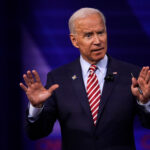In a landmark decision, the U.S. Supreme Court ruled that former President Donald J. Trump has substantial immunity from prosecution regarding his attempts to overturn the 2020 election. The 6-3 decision, divided along partisan lines, has ignited intense debate over presidential power and accountability.
Presidential Immunity: A Shield for Official Acts
Chief Justice John G. Roberts Jr., writing for the majority, asserted that presidents have presumptive immunity for their official acts. This means actions taken while in office are generally protected from criminal prosecution unless clear evidence of wrongdoing emerges. The rationale is to ensure that presidents can perform their duties without the constant threat of legal action.
Dissenting Views: A Precedent for Unchecked Power?
The liberal justices, led by Justice Sonia Sotomayor, issued a fierce dissent. They argued that this decision effectively places the president above the law for official acts, setting a dangerous precedent. According to Sotomayor, the ruling undermines accountability, allowing potential abuse of power without legal consequences.
Accountability and Transparency Concerns
Critics warn that the decision could erode mechanisms of accountability and transparency in government. By granting such broad immunity, it becomes challenging to hold presidents responsible for potential misconduct during their tenure. This is particularly concerning in cases with significant implications for the democratic process.
Political Impact: A Partisan Divide
The 6-3 vote along partisan lines highlights the political nature of the case. Supporters of the ruling view it as a necessary affirmation of executive authority, while opponents see it as an alarming expansion of presidential immunity. This divide further polarizes public opinion about Trump’s actions related to the 2020 election.
Legal Precedent: Shaping Future Cases
This ruling sets a crucial precedent for future cases involving presidential immunity. It provides a framework for distinguishing between a president’s official and unofficial conduct, a distinction that will be pivotal in ongoing and future legal battles.
Ongoing Investigations: Limits of Immunity
While the ruling grants Trump significant immunity, it does not preclude other investigations. Congressional inquiries and civil cases can still scrutinize his conduct, potentially uncovering new evidence or leading to other forms of accountability. The decision also delays federal election subversion charges against Trump, possibly pushing proceedings beyond the next election cycle.
Political Ramifications: Impact on Trump’s Campaign
Politically, the ruling could benefit Trump’s campaign by easing immediate legal pressures. Trump has celebrated the decision, potentially allowing him to campaign without the looming threat of prosecution. However, it keeps the spotlight on his actions during the Capitol attack, which could influence voter perceptions.
Biden’s Position: A Threat to Democracy?
The Biden campaign has emphasized the ruling as evidence of Trump’s threat to democracy. By highlighting the risks of unchecked presidential power, they aim to frame the election as a choice between upholding democratic principles and endorsing autocracy.
The Supreme Court’s ruling on presidential immunity has profound implications for presidential power and accountability. It remains a contentious issue with varying interpretations, reflecting deep divisions within the Court and the nation. As legal and political ramifications unfold, this decision will continue to shape discussions on executive power in American democracy.





